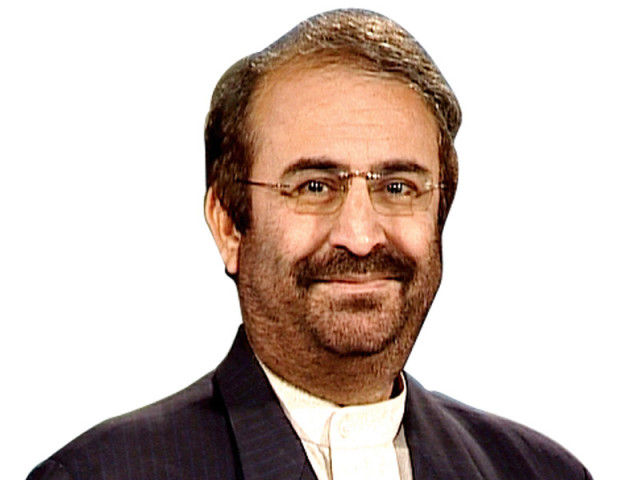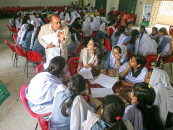Karzai hopeful Mullah Baradar’s release will revive peace process
Taliban leaders say Baradar will never ‘betray’ Mullah Omar.

Taliban leaders say the second-in-command will never ‘betray’ Mullah Omar.
Their response is justified in some respects. For instance, Islamabad has agreed ‘in principle’ to release Mullah Abdul Ghani Baradar, Taliban’s number two, after nearly three and half years of detention.
President Hamid Karzai and his aides have been demanding Baradar’s release since he was caught in Karachi in February 2010 by Pakistani intelligence reportedly acting on a tip off from US intelligence agents.
Though the Afghan government had earlier demanded Baradar be handed over to Afghan authorities, former Afghan ambassador Umer Daudzai in an interview with The Express Tribune last month said Kabul only wanted Baradar be set free and be able to go wherever he wishes.
Pakistani officials, on the other hand, refrain from commenting on the issue due to its sensitive nature. They do not explain why Afghan Taliban leaders were detained and why they were being released.
Meanwhile, released Taliban prisoners continue to baffle Afghan officials who have failed to convince them to talk with the Afghan High Peace Council. The Taliban leadership has avoided talks as it believes Karzai’s government to be America’s lackey.
The insurgent group has been adamant on withdrawal of US troops as a precondition to talking about the war-torn country’s future. Kabul’s attempt to create divisions within the Taliban leadership have also failed despite convincing some senior Taliban members including former ambassador Abdul Saleem Zaeef, former foreign minister Wakil Ahmed Mutawakil and senior commander Akbar Agha to come to a political solution.
The Afghan government also facilitated former Taliban leader Mutasim Agha Jan to stay in Turkey months after he was shot and injured in Karachi in August 2010. Mutasim, who once headed the Taliban’s political commission, frequently visits the United Arab Emirates (UAE) and Kabul to convince the Taliban leadership to support his so-called political initiative. So far, he has failed in his efforts.
Nonetheless, President Karzai has attached high hopes to Baradar’s release. Some Afghan officials claim Baradar had been involved in reviving the peace process through backchannels when he was arrested in Karachi. They believe he could kick start the process following his release, while senior Taliban leaders feel their high ranking comrade will never betray them.
Two Taliban leaders, including one involved in the Qatar peace process, told The Express Tribune Baradar will never betray Taliban’s supreme leader Mullah Muhammad Omar “for people like Mutasim.”
People view these developments as simply symbolic with no real substance to establish peace. Others claim the country is now focusing on the upcoming presidential elections due in seven months rather than the reconciliation process.
Many believe Kabul missed its chance and it was unfortunate that the US caved into Karzai’s pressure of not talking to the Taliban. A Taliban representative in Qatar earlier said disregarding the Qatar process only left them with the option of using force.
Wahid Mozhda, a former official who worked in the government during Taliban’s regime, said the seven Taliban inmates released by Pakistan did not have the required status to facilitate the peace process.
“Those released, including Mansur Dadullah, are not useful for the peace process. Mansur Dadullah was dismissed by Taliban chief Mullah Omar for holding talks in 2007 with Michael Semple, the acting head of EU mission in Kabul at the time, and Mervyn Patterson, a British adviser to the UN mission in Kabul,” he told Khurshid TV this week.
On September 4, in a veiled reference to Pakistan, Karzai clearly expressed his discontent over the delay in releasing political prisoners. He described the Taliban as foreign mercenaries, and said: “They (the Taliban) have been tasked by their foreign masters to give Islam a bad name.”
Published in The Express Tribune, September 15th, 2013.




1724319076-0/Untitled-design-(5)1724319076-0-208x130.webp)














COMMENTS
Comments are moderated and generally will be posted if they are on-topic and not abusive.
For more information, please see our Comments FAQ